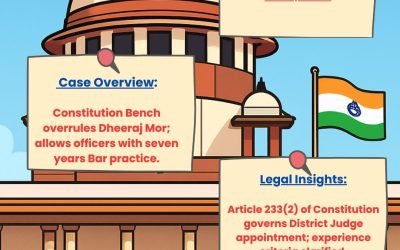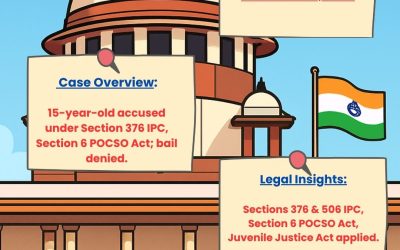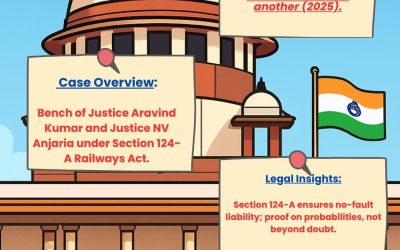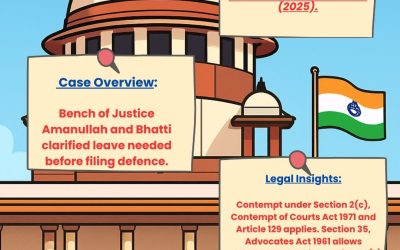 Headline
Headline
The Supreme Court of India focuses on clarity in judgments i.e. Decision-Making vs. Precedent-Making
Summary
The Supreme Court of India stresses on the requirement for judgments to properly specify whether they aim to settle disputes or set binding precedents under Article 141 of the Indian Constitution, diminishing confusion for lower courts.
Key Facts
- Case Name: NBCC (India) Ltd. vs. State of West Bengal & Ors.
- Judges Name: Justice PS Narasimha and Justice Pankaj Mithal.
- Issue was whether unregistered MSMEs can access dispute settlement under Section 18 of the MSMED Act, 2006.
- Observation: Precedents stated were specific to settling disputes and not intended to serve as binding authority under Article 141 of the Indian Constitution .
Legal Insights
The Supreme Court of India shed light on its dual roles of settling disputes (decision-making) and declaring binding laws (precedent-making), requesting clarity in judgments to differentiate these functions.
Impact
This directive makes sure for proper understanding and application of the judgments of the Supreme Court by High Courts and subordinate courts, avoiding misinterpretations.
Why It Matters
By distinguishing decision-making from precedent-setting, the judgment protects judicial consistency and efficiency in providing justice.
Source







